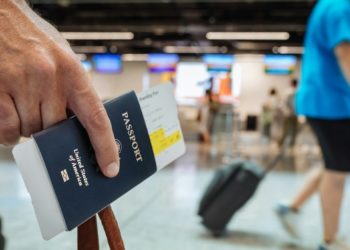Despite the fact that the UK was never a Schengen country and has withdrawn from the European Union as of 2020, British citizens don’t require a tourist visa to travel to the countries comprising the Schengen area, provided that they don’t overstay the 90-day allowance This allowance extends to British Protected Persons, British Subjects, and British Overseas or British Overseas Territories citizens as well. UK residents, on the other hand, may need to fill out a visa application.
A Schengen visa for UK residents enables holders to remain in the Schengen Zone for 90 days within a 180-day window, and it can be granted for the following purposes:
- To transit through an airport
- For tourism
- For business events
- For family reunions or visiting friends
- For cultural purposes
- To get medical treatment
- For short-term studies
- For official visits
In the case of those with a UK residence permit who wish to apply for a Schengen Visa from UK, their permit’s validity should extend beyond the estimated departure date from the Schengen Area by three more months, otherwise, their petition will be declined.
Holders of a UK visa are not entitled to apply for a Schengen visa at the embassies located in the United Kingdom (unless they were granted an extension for three more months). If they wish to travel to a Schengen Area country, they must submit their petition at the Schengen embassy located in their home country.
It bears stressing that people whose country of origin has signed a visa-free agreement with the Schengen Area countries are not required to obtain a Schengen visa unless they’ve been denied entry previously. The same condition applies to UK citizens.
Visa Application Requirements for Residents in the United Kingdom
To apply for a Schengen visa as a legal UK resident, the following documents would have to be submitted:
- A valid passport issued within the previous 10 years with two blank pages available (for the visa stamp and a spare page) and valid for at least three months after your estimated departure from the Schengen territory.
- A valid UK residence permit valid for at least three more months beyond the date when you should exit the Schengen area.
- The application form completely filled out and signed.
- A passport format photo with a light background. It should be bright and expose all the facial features. Furthermore, the photo should be glued to the application rather than stapled.
- A cover letter with details regarding the purpose of the visit.
- Proof of a round-trip travel itinerary, such as flight reservations, train/bus tickets, or a package tour.
- Travel insurance with a minimum medical and repatriation coverage of €30,000 (also called Schengen travel insurance).
- Proof of financial means to support yourself during your stay in the Schengen area. This could be a bank statement proving you have the necessary amount of money.
- Visa fee payment receipt or proof, which must be shown to the consular officer. The fees in UK pounds amount to £73 per adult and £36.5 per child between the ages of 6 and 12 (children under 6 years old don’t have to pay any fee.) The fee is not refundable if the application gets rejected.
Also:
- If you’re an employee, you must show: Employment contract, leave permission from the employer, and Income Tax Return or certificate of Income Tax deductions.
- In case of self-employment, you’d have to accompany your application with a copy of both your business license and Income Tax Return.
- If you’re retired, you must submit a pension statement corresponding to the last 6 months.
- Foreign students ought to attach an official letter from a UK institution (school, college, or university) with details regarding the course, attendance record, and type of studies. This letter should be no older than three months.
Unemployed spouses of UK citizens can apply, provided they submit the following:
- Confirmation of Employment from the spouse’s employer (signed within the past 3 months) which makes explicit mention of the position held and the starting date.
- The spouse’s valid passport or travel document.
- A valid marriage certificate. If it’s not in English, it should be officially translated and the translation must be certified as a true copy by the Embassy of the country the ceremony took place in or by the Foreign Office in the UK, via its Legalization Bureau.
Applicants must, furthermore, attend the meeting with the consular office that will review their application. The meeting must be booked with the pertinent Consulate or Embassy or through an accredited agency.
Where Should I Apply for a Schengen Visa from UK?
The correspondent Embassy or Consulate where you should submit your application is determined by the following criteria:
- If you plan on visiting only one country within the Schengen Zone, you must reach that country’s Embassy or Consulate.
- If you are envisioning visiting various Schengen countries, you would have to go to the Embassy or Consulate of your main destination country (the country where you’ll spend the most time in), or the first destination country if the stay duration is equal among all the countries in the itinerary.
What Should I Do If I Plan on Staying for Longer Than 90 days in a Schengen Country?
In that case, you should apply for a Long-stay visa (residence permit) rather than a Schengen visa. Conditions and instructions for applying for a residence permit might vary between countries and can be found on the corresponding Embassy’s or Consulate’s homepage.
When Should I Apply for a Schengen Visa?
You should apply for the Schengen visa at least 15 days before your visit or earlier, but no earlier than 6 months. If you already hold a multiple-entry visa, you can apply six months prior to the visa’s expiry date.
Get Schengen Visa Help from Professionals
While you could technically fulfil the requirements for a Schengen visa, getting a visa is never a right. Various reasons could prompt your application’s rejection by immigration authorities, which go beyond the scope of the required documentation.
For this reason, it’s imperative that you rely on experienced immigration lawyers or law firms, as they should be capable of helping you deal with all the hurdles involved in the visa application process, as well as walking you through the steps you must take and the errors you must avoid from the moment you book your appointment with the Embassy or Consulate officer.


![7 Best POS Software in the UK [2026 Edition]](https://todaynews.co.uk/wp-content/uploads/2026/02/7-Best-POS-Software-in-the-UK-2026-Edition-360x180.png)










































































